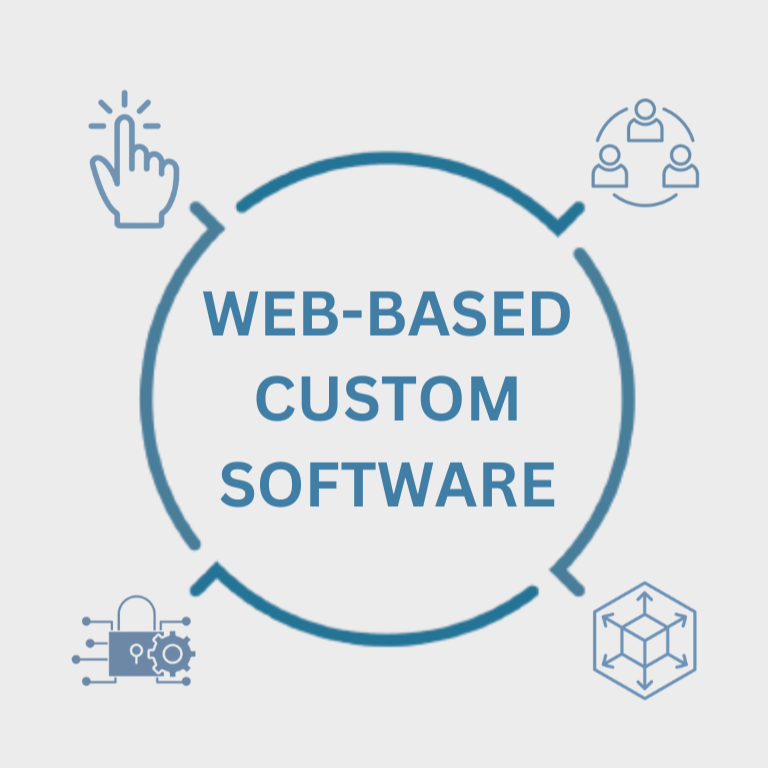SOFTWARE APPLICATIONS ACCESSIBLE FROM ANYWHERE
Web-based custom software vs desktop applications
As we all spend more and more time online, businesses are increasingly turning to web-based custom software solutions to address their unique needs and challenges. Web-based software refers to applications accessed through web browsers, which offer a host of benefits compared to traditional desktop applications.
There are a number of reasons for the growing popularity of online solutions, especially for custom software, including the rise of remote working. These solutions are designed to provide flexibility, scalability and accessibility, empowering businesses to streamline processes, enhance collaboration and drive innovation.
First introduced in the 1990s, early web-based applications were simple programs that were limited in their functionality. These were often little more than online forms and buttons that would query a database and return results. However, since the release of HTML5 in 2008, web-based applications have become much more powerful and interactive, and the experience closely resembles that of using desktop applications.

Benefits of web-based custom software
Examples of well-known web-based software applications
Unlock your business’s full potential with web-based custom software
Contact Netgen today!

